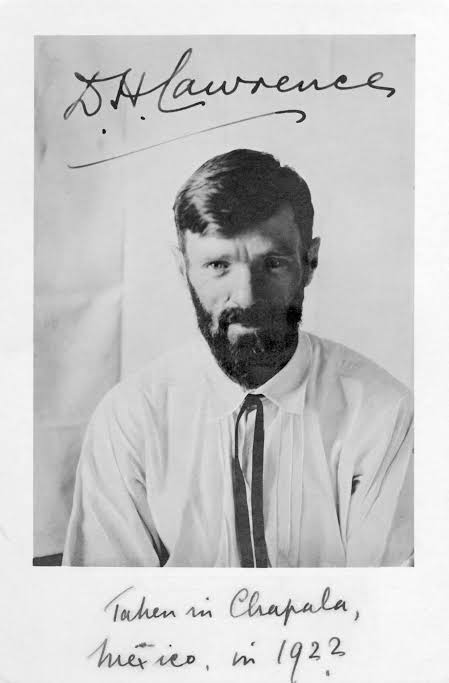
Evaluate D.H. Lawrence’s Sons and Lovers as a case study of Freudian psychoanalytical genesis of the emotion of love.
A son loving his mother too dearly and in turn, the mother who lavished all her affection upon her son. Elusiveness and mystification of the psychic conflicts between mother, lovers, father and sons framework engenders the Freudian psychoanalysis and thus underscores the Oedipal and Electra complexes. Mr. Lawrence voices the struggle of the central protagonist Pual Morel to emancipate himself from maternal allegiance and thus transfer his affections to a fiancee who belongs to another human creed. Furthermore, mother and son are one and the husband is completely effaced and the father exists merely as a harlequin humbug.
Obsession with the possessive love between mother and son salvages the creaking domestic hearth’s explosive ambience from the parental violence and physical intimidation including banging fists, muffled voice, hurling of attics. Paul Morel’s tokens of love and appreciation such as the bouquet of flowers and extracurricular activities accomplished with accolades, medals and laurels become entirely dedicated to the heartfelt charismatic lady, Mrs. Gertrude Morel. This possessive obsession is explicated in the statements from the textual reference: “In the end she shared everything with him without know … She waited for his coming home in the evening, and then she unburdened herself of all she had pondered, or of all that had occurred to her during the day. He sat and listened with his earnestness. The shared lives.” Furthermore, this recreational exchanges and emotional correspondence provide salvation to Mrs. Morel’s macabre existence that compelled her life to a maniacal debacle, haunting the Derbyshire coal mining family.
Eventually with the demise of the patriarchal head of the family, Paul Morel’s dilettantism and hedonism frame the newly orphaned boy to earn a thirty and/or thirty-five shillings a week. With that petty finance Paul Morel intends to pursue a Bohemian lifestyle except purchasing a real estate shanty cottage in the neighbouring countryside and live there with his mother happily ever after. In this episode, Paul Morel develops a romantic affair for the neighbouring farming family maiden Mirriam Leiver, a loner, reticent, exalted and reserved girl. Herein, the intruder motherly figure creeps into the lives of these romancers to a hellish extent and that her intrusion, however, can be solely vindictive in case of apprenticing Paul Morel to surgical warehouse for the rapid surge in effeminization.
Nonetheless, Mrs. Gertrude Morel admonishes the camaraderie of vampirish girls such as Miriam Leiver emphasizing that, “She is one of those who will want to suck a man’s soul out till he has none of his own left.” This commentary satirizes the trenchant of a scathing wife to her husband. Relationship between the newly piquant romancers thus prove to be a futile endeavour if analogies to textual references are contextualized: “Oh, Lord let me not love Paul Morel. Keep me from loving him, if I ought not to love him” and “He was afraid of her. The fact that he might want her as a man wants a woman had in him been suppressed into a shame.” Tumultuous turmoil invades the relationship and thus virulent acrimony plagues their relationship through rhetorical estrangement and psychological alienation. Except the church gatherings harboured a sense of spiritual reconciliation by reuniting his two loves under the spell of the place of worship.
Even the maternal allegiance disintegrates to a dread and dreary affair as soon as gerontological diseases and William Morel’s death inflicted Mrs. Morel. Off late Paul Morel’s Lincoln Cathedral excursion proves to be a bizarro after witnessing Mrs. Morel to the emblematic manifestation in idolized version of an old sweetheart.
The amorous conquest progresses toward Clara Davies, distant relation of Miriam Leiver. She possesses sensual mysticism as revealed by the intimation of Paul in the statement that “She was to him extraordinarily provocative, because of the knowledge she seemed to possess and gathered fruit of experience. Afterall, Clara advises Paul that Miriam wanted sensual gratification instead of soul communion and fantasy imagination. In this way, she thus, boldly wields the shield of courage in the fantastical Paul Morel that he couldn’t have achieved out of his own accord. .
Morbid manifestations of the abnormal environment transforms the hero of the narrative fiction from a wreck and a ruin to a ruthless egotist and a vicious weakling in his dealings with the feminine characters. Even his masculinized maleness can be challengingly grisly by his dealing with his elderly mother whom he had stooped to get rid off. These human flaws are the result of the love instinct that gradually partakes with the sudden efflorescence and poetic charm booming from evolutionary stages of puberty. Freud explicates motherly love to be maidenly love that blooms during maternal caresses and intimate feelings of oneness, thus we feel a conscious passion for another individual of the opposite sex. Frank hostility and incessant jealously invoke the spirit of childhood and adolescence love fantasy and this testimony testified unbridled egoism. Paul Morel is tenaciously rooted in his maternal parent and doesn’t relinquish his hold upon her unless her elderly transition to old sweetheart.
Paul Morel’s dejection and desertion of love life is the result of the interweaving of immature phantasies of procreation with his former ideal adoration of his beloved mother Gertrue Morel. Furthermore Freudian psychoanalysis implies that male characters like Paul Morel chooses a girl who most resembles his mother and the heroine figures are likely to mate mostly with the man who reminds themselves of their fathers. Our fathers and mothers are ingrained imagoes in the veil of forgetfulness ever since childhood which we cannot obliterate.
Further Reading
Sons and Lovers: A Freudian Appreciation [1916], Alfred Booth Kuttner, Psychoanalytical Review, Vol. 3, No. 3, July 1916, pp. 295-317, D. H. Lawrence’s Sons and Lovers, A Casebook, Editorial of John Worrhen [Emeritus Professor of the University of Nottingham] and Andrew Harrison [a tutor in English Literature at the University of Warwick], Oxford University Press.
